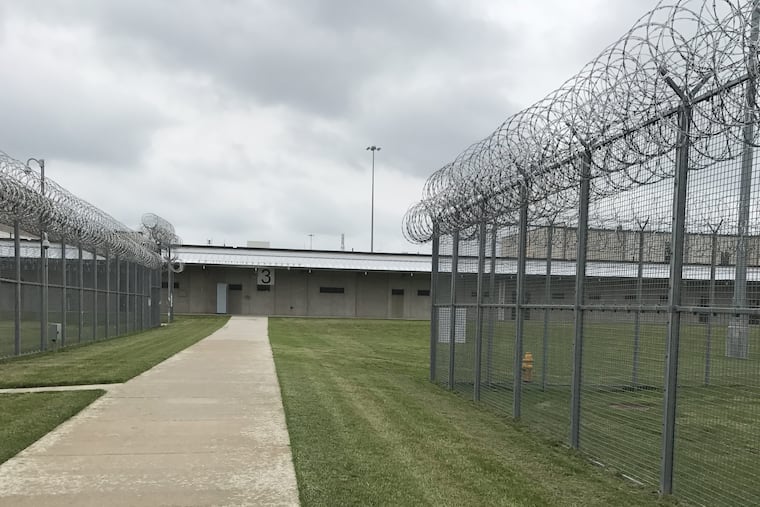Is criminal justice reform the one issue that can unite a polarized America? | Opinion
Politicians as different as President Trump and Governor Wolf agree.

Are partisan division and political bickering unavoidable in American politics? The headlines make it seem so, but it’s not true. Transformative issues can still bring us all together. Want proof? Politicians as different as President Trump and Governor Wolf agree on this: Our criminal justice system needs reform.
Recent bipartisan victories, such as the federal First Step Act and the success of Pennsylvania’s Justice Reinvestment Initiative, prove elected leaders can still cooperate on behalf of all citizens. These “smart on crime” measures are protecting public safety while helping former prisoners live independent, crime-free lives. And the results speak for themselves. Pennsylvania’s prison population plummeted by the most in history last year and dropped in six of the last seven years. Notably, crime rates fell at the same time. A remarkable achievement, but we’ve got much more work to do.
That’s why the state legislature passed with overwhelming bipartisan support — and Gov. Wolf signed — “clean slate” legislation, which Sen. Williams sponsored. This bill gives the formerly incarcerated a second chance at life and employment by sealing criminal records for certain nonviolent misdemeanors after 10 years without any additional convictions. Pennsylvania is now a model for states across the nation considering similar reforms.
And recently, the governor and General Assembly stopped suspending driver’s licenses for certain nonviolent, non-driving offenses. Suspending licenses hurts working people’s ability to earn their own success and provide for their family.
The Trade Institute of Pittsburgh’s executive director, Steve Shelton, who works with returning citizens to secure good-paying jobs, testified about the importance of this reform last year: “I can’t get industry-certified welding graduates to [a local energy project] because of past offenses that keep them from obtaining a driver’s license.”
Fortunately, lawmakers acknowledged this and joined together to fix an indefensible policy. Here are three ways we can build on this bipartisan momentum.
First, update our antiquated probation system. the Commonwealth’s supervised population is the second-highest among reporting states. Why? Because we have pointlessly long probation sentences, resulting in excess technical violations that land people in prison and create even longer probation sentences.
We can break this cycle through bipartisan comprehensive probation reform legislation S.B. 14, which Sen. Williams introduced this week in partnership with Sen. Camera Bartolotta (R., Washington County). The bill’s goal is simple: minimize technicalities and shorten parole. It’s proven that recidivism dramatically declines after the first year of probation, so probation sentences longer than a year are generally unnecessary, counterproductive, and expensive.
Second, reform our sentencing and parole practices to lower costs and shorten prison stays where appropriate. The second phase of the Justice Reinvestment Initiative (JRI2), which the Senate passed last year, includes improved sentencing guidelines and easier access to drug treatment, streamlining the process for the parole-eligible and offering a better chance to reintegrate into society.
The Council of State Governments Justice Center estimates these reforms will further reduce the prison population and save approximately $48 million over five years.
JRI2 also supports crime victims by expanding compensation rights and informing them when their perpetrator is out on parole. This prioritizes public safety while establishing compassionate, smart sentencing.
Third, roll back burdensome occupational licensing laws so returning citizens can find work. These laws increase recidivism by creating unnecessary roadblocks for those seeking employment after leaving prison. Without well-paying jobs, those formerly incarcerated often turn to more desperate options.
An Arizona State University study found states with the highest licensing burdens increased recidivism 9 percent over 10 years, while states with the lowest burdens reduced recidivism by an average of 2.5 percent. Because employment is a critical factor in determining whether someone returns to prison, it’s no surprise that licensing has an effect on crime.
These three measures won’t fix all of the Commonwealth’s law enforcement challenges, but they will make our criminal justice system fairer, improve public safety, and protect the disadvantaged. No matter what side of the political divide you’re on, we can all agree that these are goals worth striving for.
Anthony Williams is a Democratic member of the Pennsylvania Senate, representing the Eighth District since 1998. Charles Mitchell is president and CEO of the Commonwealth Foundation, Pennsylvania’s free-market think tank.